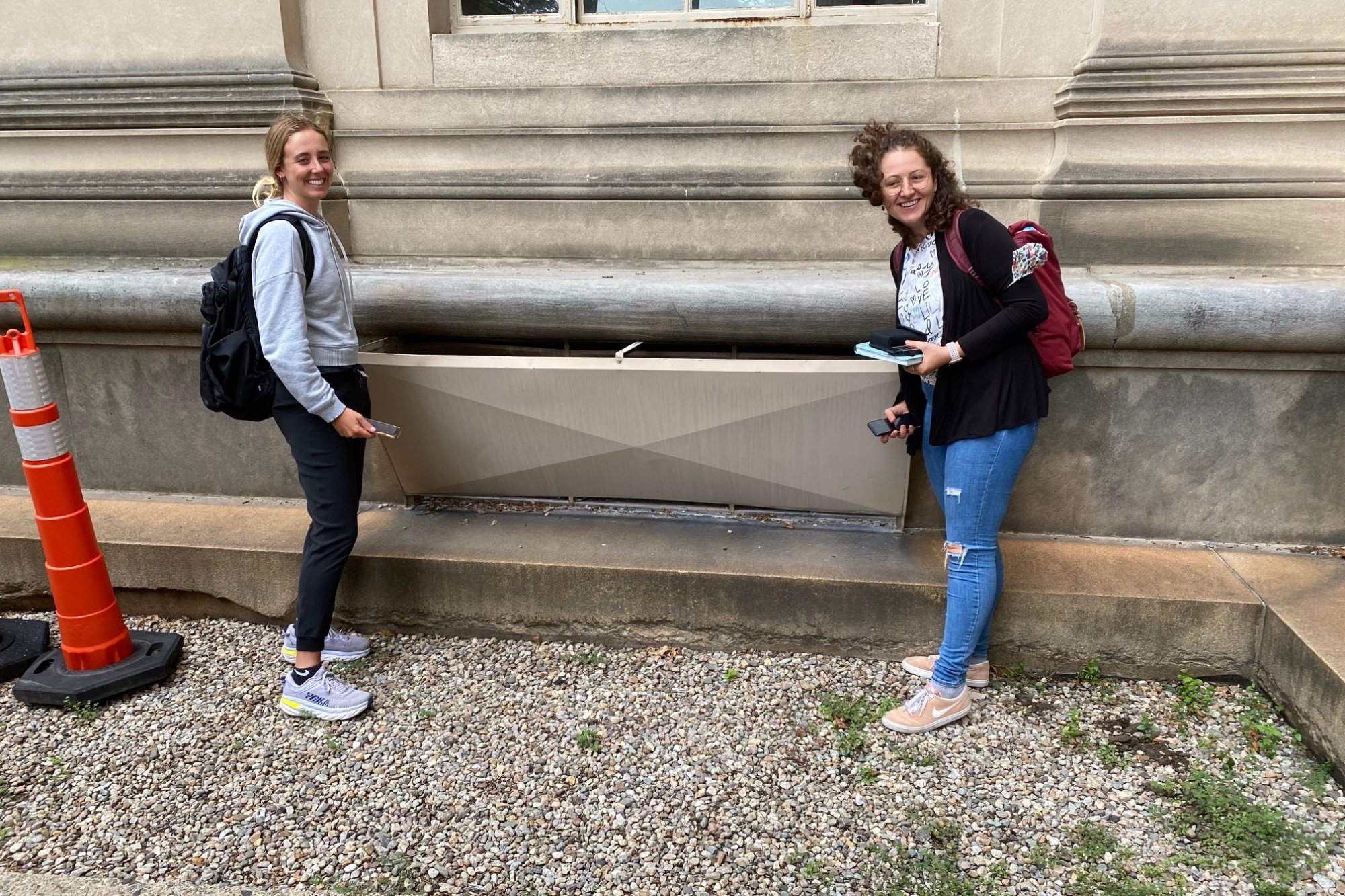
Surveying the quality of life at MIT
A new survey of MIT students, faculty, and staff will inform initiatives to improve the work-life experience on campus and at Lincoln Laboratory.
The MIT Council on Family and Work today released a new Quality of Life Survey for faculty, staff, and students at MIT. Results from the voluntary and anonymous survey, which can be taken starting today, will inform initiatives to improve the work-life experience for the MIT campus community and Lincoln Laboratory.
Faculty and staff were surveyed on similar issues in 2012 and 2016, students in 2013 and 2017. Beginning this year, the entire MIT community is being surveyed at the same time.
The council’s co-chairs, Amy Glasmeier, a professor in the Department of Urban Studies and Planning, and Ken Goldsmith, assistant dean for finance and administration in the School of Architecture and Planning, view the 2020 survey as an opportunity to gather data from the community that will inform senior leadership about how to make MIT a supportive and inclusive environment where everyone can excel.
Email invitations, sent today to the MIT community, include a link to the web-based survey, which covers a range of topics — from satisfaction and workload concerns to the intersection of work and personal/family life.
The Council on Family and Work is committed to maximizing the response rate for all sectors of the community to ensure the results are as representative as possible. The 2020 survey is more streamlined than earlier versions and, while still comprehensive, should take less than 25 minutes to complete. Many of the survey questions have been asked over time, which allows the Council on Family and Work to understand what aspects of MIT’s culture have changed or stayed the same.
The survey is being administered by MIT Institutional Research (IR) in the Office of the Provost. Results will be presented in a way that ensures the confidentiality of individual responses. For the purposes of analysis, IR may combine other data with responses to the survey.
The Quality of Life survey is a primary source of information about the experiences of members of the MIT community, such as the importance of flexibility in the workplace, perceptions on the availability of resources to complete a person’s job, having friends at work, and feeling respected by others. By understanding the distribution of these perspectives within our community, MIT will have more information about the types of support services it needs to provide.
From responses to recommendations
Results of the survey are used in a variety of ways. In the spirit of transparency, overall results will be posted on the IR public website in the form of an interactive Tableau Report. Additional analysis will be done in conjunction with the Council, including comparisons with prior years. Summary results will be available to individual units to inform their leaders on issues specific to their areas, provided there are sufficient responses to ensure confidentiality for individual respondents.
Later in the year, the Council on Family and Work will publish a comprehensive report. Other reports may focus on specific subjects — such as workplace flexibility, as one example — or subgroups at MIT, such as gender, race/ethnicity, international origin, and sexual orientation. The intention is to identify areas in which MIT is doing a good job as well as areas for improvement.
One of the highest priorities of the council is the protection of individual responses. The more candid the response, the more useful the data. But while the council is committed to transparency of the results, it is equally committed to the confidentiality of the individual response.
Role of the MIT Council on Family and Work
The Council on Family and Work was established in 1992 by then-MIT president Charles Vest. The council is a presidentially appointed committee overseen by the executive vice president and treasurer. MIT’s first major committee to focus on these issues was the Ad Hoc Committee on Family and Work, formed in 1989, which recommended the establishment of the council.
At the beginning, the council focused primarily on issues related to women and children (e.g., maternity leave, childcare). In the last 10 years the focus has broadened to incorporate long-term pressing needs and concerns of the whole community. Culture, climate, and engagement are major themes of the survey.
The council works closely with the MIT Work-Life Center and the Employee Benefits Oversight Committee. Topics under discussion include flexible work arrangements and improving the tuition assistance program. There have also been enhancements to the employee assistance program, which helps faculty and staff deal with a suite of life-course challenges, from elderly parents to legal issues to difficulty managing finances. Glasmeier notes that this program, now in its third year, is used far more at MIT than at other universities.
A change in co-chair
James Bales, associate director at the Edgerton Center, recently stepped down as co-chair of the MIT Council on Family and Work. He served on the council for 10 years and played a central role in the last two Quality of Life Surveys. He helped with both the front-end work of getting the questions right and the back-end work of getting the reports done.
The council recently welcomed its new co-chair, Ken Goldsmith, who believes that significant strides get made when people get involved. He and Glasmeier encourage MIT faculty, staff, and students to take the 2020 Quality of Life survey to help make MIT an inviting, inclusive, progressive and well-liked place to study and work.
To access your survey or learn more, visit ir.mit.edu/qol.
Reprinted with permission of MIT News
